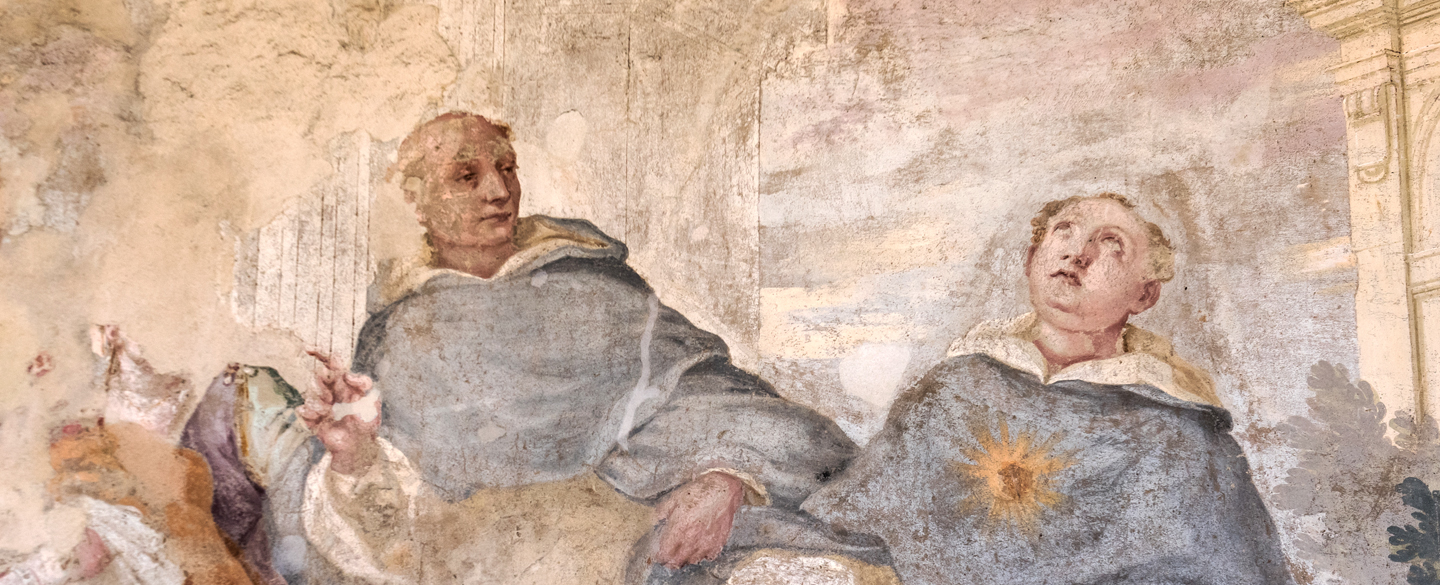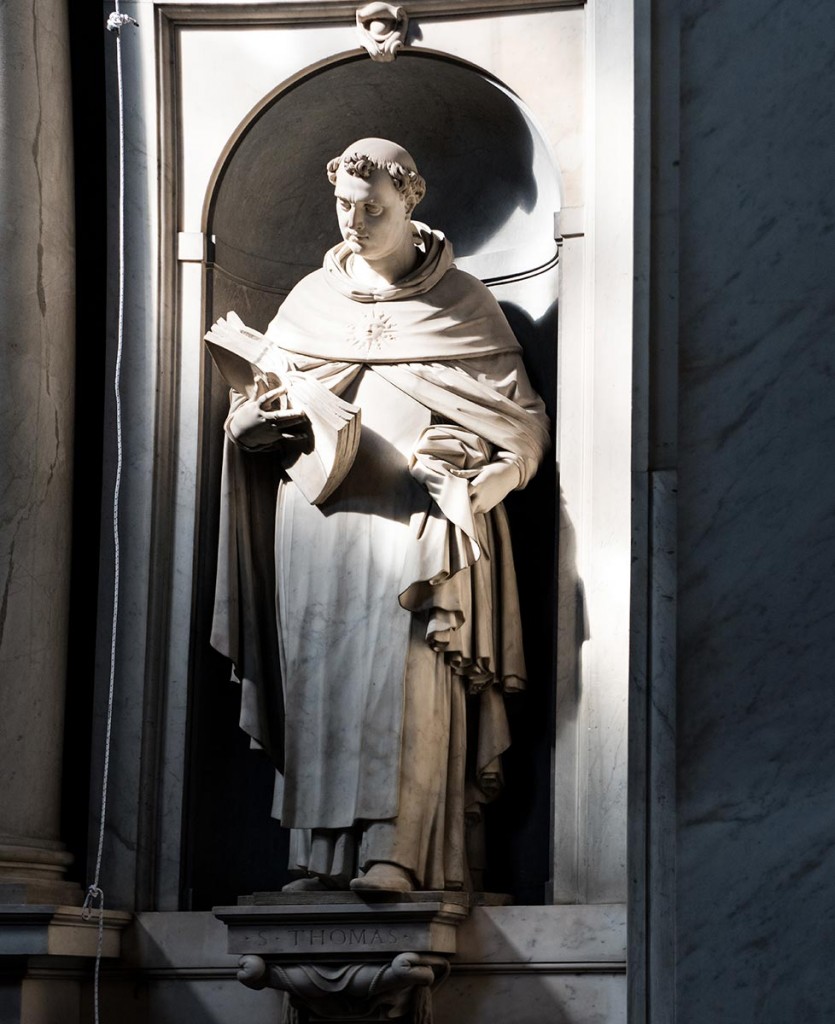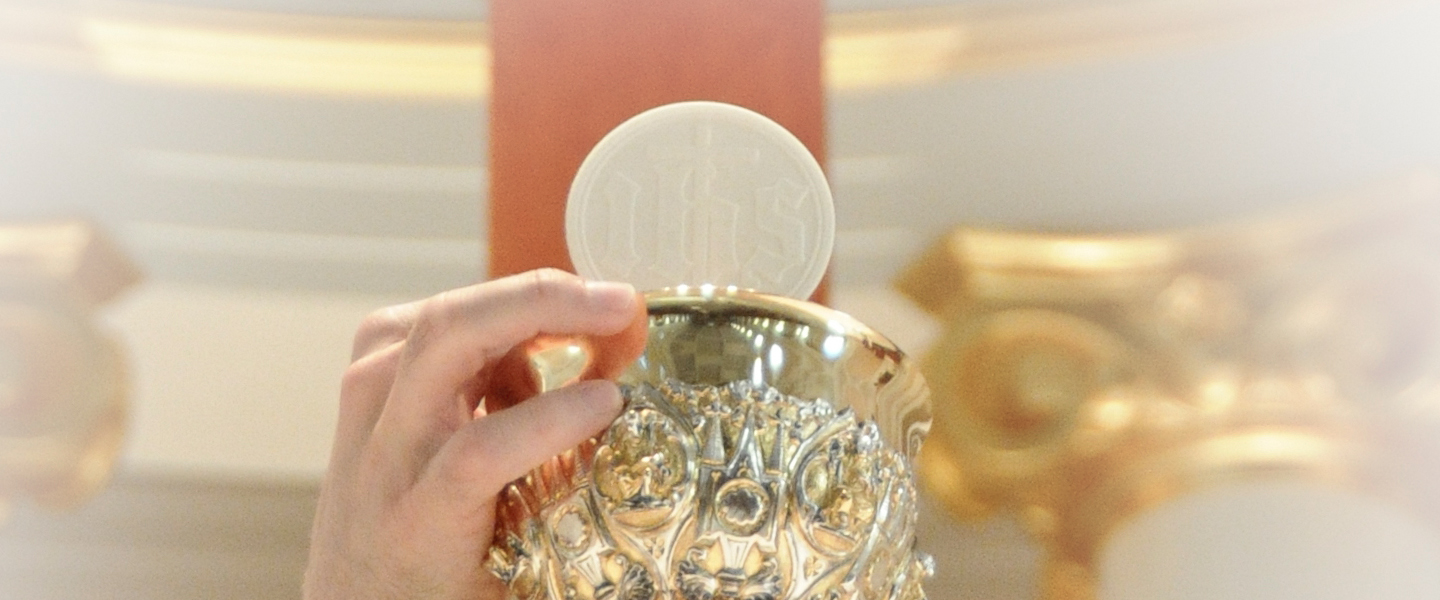
O Sacred Banquet, in which Christ is received, the memory of his Passion is recalled, the soul is filled with grace, and the pledge of future glory is given us. (Antiphon for Corpus Christi)
 The texts for the Feast of Corpus Christi are attributed to the Dominican St. Thomas Aquinas. These texts include an antiphon prayed before and after the Magnificat at Vespers, which begins with the phrase, “O Sacred Banquet.” This antiphon has been used independently as a prayer in its own right. The “O Sacred Banquet” (O Sacrum Convivium) has been used by Dominicans to precede the hours of the Divine Office, particularly when the Office is prayed before the Blessed Sacrament. With its Eucharistic basis, the “O Sacred Banquet” brings us into the Lord’s presence and is a reminder that the Office is an extension of the Mass.
The texts for the Feast of Corpus Christi are attributed to the Dominican St. Thomas Aquinas. These texts include an antiphon prayed before and after the Magnificat at Vespers, which begins with the phrase, “O Sacred Banquet.” This antiphon has been used independently as a prayer in its own right. The “O Sacred Banquet” (O Sacrum Convivium) has been used by Dominicans to precede the hours of the Divine Office, particularly when the Office is prayed before the Blessed Sacrament. With its Eucharistic basis, the “O Sacred Banquet” brings us into the Lord’s presence and is a reminder that the Office is an extension of the Mass.
This short prayer brings to mind the many and varied meanings of the Eucharist. It begins with the image of the “banquet,” reminding us that in the Blessed Sacrament, Jesus is truly food for our souls. The Lord presented the Eucharist to the Apostles in the setting of the Last Supper. This meal enjoyed together as a community helped the Apostles to realize the truth of sharing in Christ’s Body and Blood as food and drink. This lesson was reinforced with the disciples on the road to Emmaus when they recognized Him in the breaking of the bread. They would finally understand the full meaning of the mysterious Bread of Life discourse given in John’s Gospel. Man would truly eat the Flesh of the Son of Man in order to have eternal life.
Christ is received in Holy Communion, which unites our being with His. At no time are we closer to Jesus than when we receive Him in Holy Communion. We are one with Him in a unity of both body and soul. As He is never separated from the Trinity, so we too are taken up into the life of the Triune God while the Second Person dwells in us. At the same time we are united to all those who likewise receive the Blessed Sacrament, united with a bond far closer than that of family or marriage ties, as this is a divine unity.
The memory of his Passion reminds us that the Mass is truly a sacrifice and that by his sacrifice Jesus won for us our salvation. There is only one sacrifice of Jesus. He offered Himself as victim to the Father to atone for our sins. His Passion, suffering, and death once and for all provided the means for our redemption. Each Mass is not an additional sacrifice, nor does it repeat the sacrifice of Calvary. Rather the Consecration makes present on our altar the Priest who suffered, and so the Mass is inherently one with the Passion. As we remember Christ’s Passion, we are called to join Him, giving our own lives as sacrifice.
The sacramental nature of the Mass explains why the soul is filled with grace, as the sanctifying gifts we received at Baptism are strengthened in us. Baptism gives us a share in the divine life of the Trinity. Yet that life is not yet perfected in us; it needs nurturing. The Eucharist, in and of itself, nourishes Christ’s life in us. It is pure gift from God, and it is impossible for us to think that we could possibly merit it in any way. With such a treasure offered to us, how could we not desire deeply to assist at Mass and receive the Lord every day?
Finally, the pledge of future glory reminds us of the Eucharist as the new and everlasting covenant, making us God’s people whom He calls to be with Him for all eternity. Sometimes we seem more attuned to the covenant God wrought with His people in the Old Testament. God pledged Himself to his people as a Bridegroom to his bride. Yet no representation of this covenant ever came close to the pledge of the New Testament, in which the Bridegroom actually lays down his life for his beloved Bride. Not only does He die, but He is also raised from the dead as a sign of his intent to raise his Bride to eternal life with Him. This is the pledge of future glory given to us in the Eucharist.
As we recite this prayer before each hour of the Office, we are drawn into the central mysteries of our faith. In this Eucharistic Presence, we offer our prayers of praise and thanksgiving, adoration and petition. At the threshold of heaven, we know our prayers will be heard.


 Back
Back